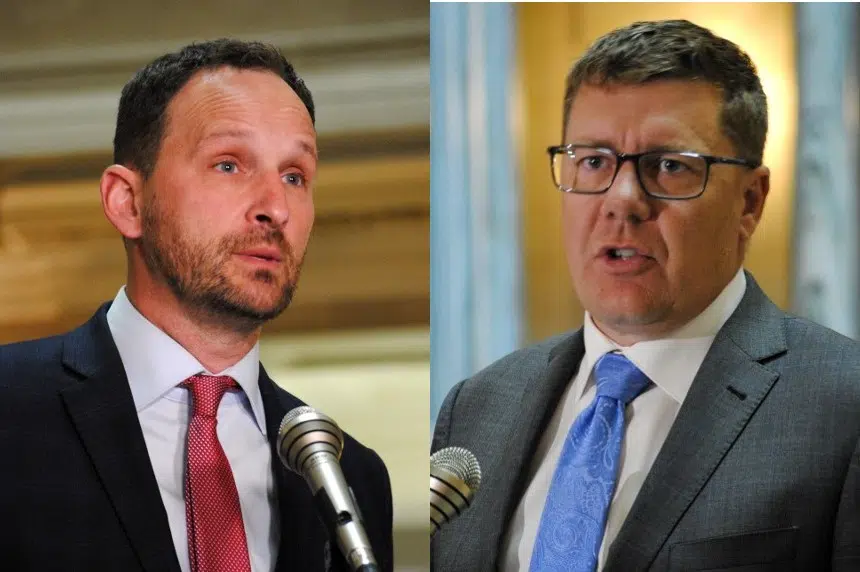University of Regina political scientist Jim Farney was impressed by what he saw during the provincial leaders’ debate on Wednesday night.
“There was some muttering and you could see some collars getting a bit red at points. But you could watch the hour-long debate and actually come away with a really clear picture of what the two parties stood for and that they were different,” Farney said during Thursday’s Greg Morgan Morning Show.
“Even the post-debate scrums were super-civilized. That’s actually a real accomplishment.”
Farney did not believe there was a clear winner between the Saskatchewan Party’s Scott Moe and the NDP’s Ryan Meili, saying the two leaders had differing goals.
“Moe has clearly decided he’s going to play for the future and defend the Sask. Party’s record since 2007,” he said. “Meili’s got a narrower front of attack as an opposition leader so I wouldn’t say there’s a clear winner either way.”
At many times during the debate, both leaders circled back to the economy and the provincial budget. Farney found they laid out two “very different” spending policies but were based on the same premise of which he’s skeptical.
“They both assumed we’re going to have a period of growth in front of us,” Farney said. “You could be a little more pessimistic than perhaps either of them about that.”
Moe came out with a new attack, charging that the NDP has billions of dollars in uncosted platform commitments.
Farney said the validity of the attack depends on which set of accounting principles you follow.
On the one hand, there are those who would include Crown capital debt, he said. But under the current accounting rules used for budgets, Farney said capital borrowing and capital borrowing by Crowns is kept separate.
“(Members of the Sask. Party) were also quibbling with a bunch of the actual numbers that were in the NDP platform so by then, you’re down into the weeds and really fighting over ‘he said, he said’ numbers,” Farney noted.
One topic that caught Farney by surprise was the discussion on making masks mandatory to help in the fight against COVID-19.
Neither leader would say whether he would mandate face coverings, although Meili said he would work with public health officials to set the tripline for when they would be required.
“I think it’s one of those things that should be not the subject of partisan debate,” Farney said.
On education, Farney said he wasn’t sure if public opinion shifted much, saying people have a “huge amount” of trust in Moe “but they kind of like Meili’s policies.”
Another moment that stood out to Farney was when moderator Molly Thomas asked if Moe regretted not meeting with Tristen Durocher, a young Metis man who set up a teepee in Wascana Park in protest to call for more action on suicide prevention.
Moe did not answer the question directly but pointed to the party’s Pillars for Life Strategy and a letter co-signed with the Federation of Sovereign Indigenous Nations committing to addressing the crisis.
“That was a really awkward tapdance and suicide is such a crucial issue. I was surprised that he didn’t give a clear answer,” Farney said.











